International Women’s Day 2021 : Women in Leadership
The Library at Queen’s Research Showcase
Áine Poland
PhD Student, School of History, Anthropology, Philosophy and Politics | apoland02@qub.ac.uk | Twitter: @AinePoland
What is your research about
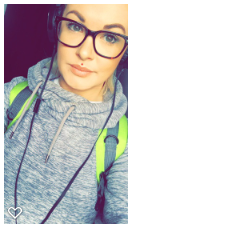
My research examines the social structures and networks of anglophone foreign women in China during the late Qing period, focusing on their social and personal connections.
By establishing a clear framework for understanding the social context and connections of these women, my research will reveal more about both the opportunities available to them, and the restrictions which limited them. By incorporating social network analysis, my project can make use of mathematical algorithms and network visualisations to undercover hidden structures based on the interactions these women had with one another. Key figures, social hubs, and individuals who bridge information gaps, which traditional methods may not unveil, can be identified and contextualised.
As many of these women in their time were referred to as ‘Mrs. X’, many of them have not been properly afforded their place in transnational history. Through newspapers & publications, alongside the letters and diaries of women (and some men) in China during the late Qing period, the biographical information of these women will be pieced together, and a light shone on their experiences. Not only will may research add to the herstories of imperial careering, the use of a research method adapted from the social sciences, places this project outside the box.
What sparked your interest in this topic?
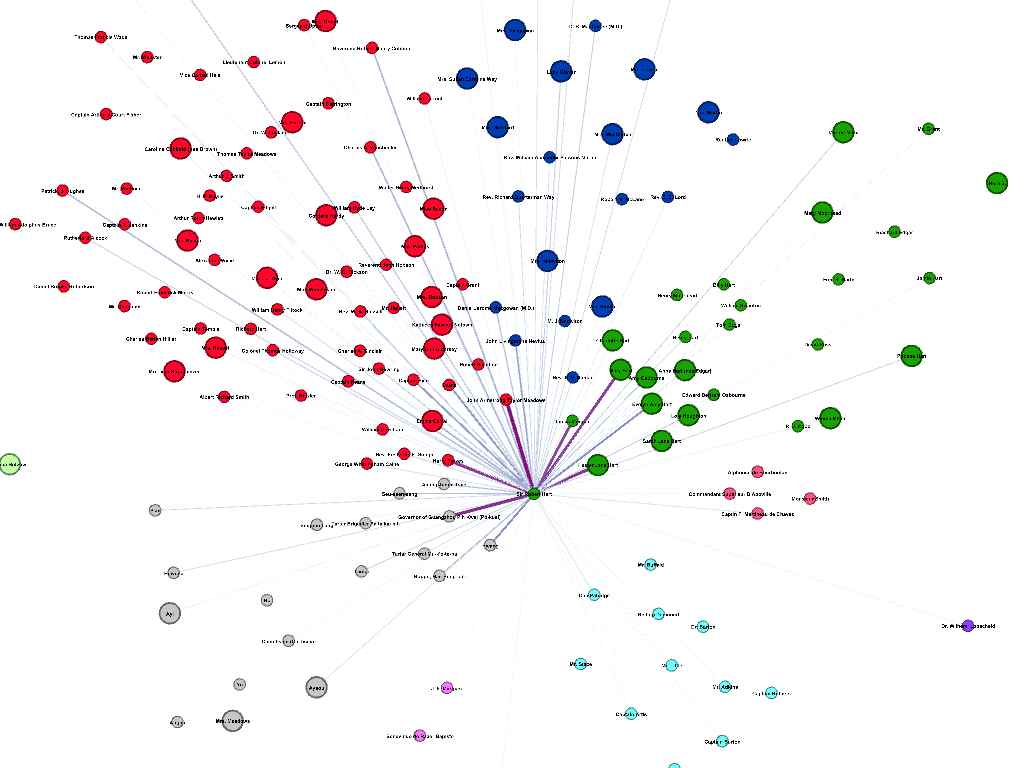
During my undergraduate degree, I took part in a second-year module called ‘Visualising China’s encounter with the West.’ The module included using the medium of photography to learn more about the intricacies of a complex relationship.
We had the opportunity to engage with the ‘Sir Robert Hart Collection’ held by the McClay’s Special Collections. It was a combination of engaging with primary sources, attempting to understand a culture so very different from my own, and the experience of a research medium I had not previously considered that sparked my interest in China and its foreign settlements.
Lauren Browne
PhD Student, School of History, Anthropology, Philosophy and Politics | lbrowne09@qub.ac.uk
What is your research about
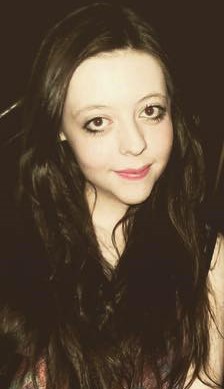
My research examines the ways in which medieval English queens and royal paramours were represented in the Tudor period. I use ballads, plays, poems, chronicles and other print literature to assess how the reputation of figures such as Eleanor of Aquitaine, Jane Shore, Isabella of France, Piers Gaveston, and Margaret of Anjou changed over the course of the sixteenth century.
I am particularly interested in how Tudor authors used the past in order to explore contemporary social and political concerns. The themes of female power and sexuality, the succession, and the threat of civil war are prevalent in all of the representations I have examined – suggesting that these issues were keenly felt in the Tudor period.
What sparked your interest in this topic?
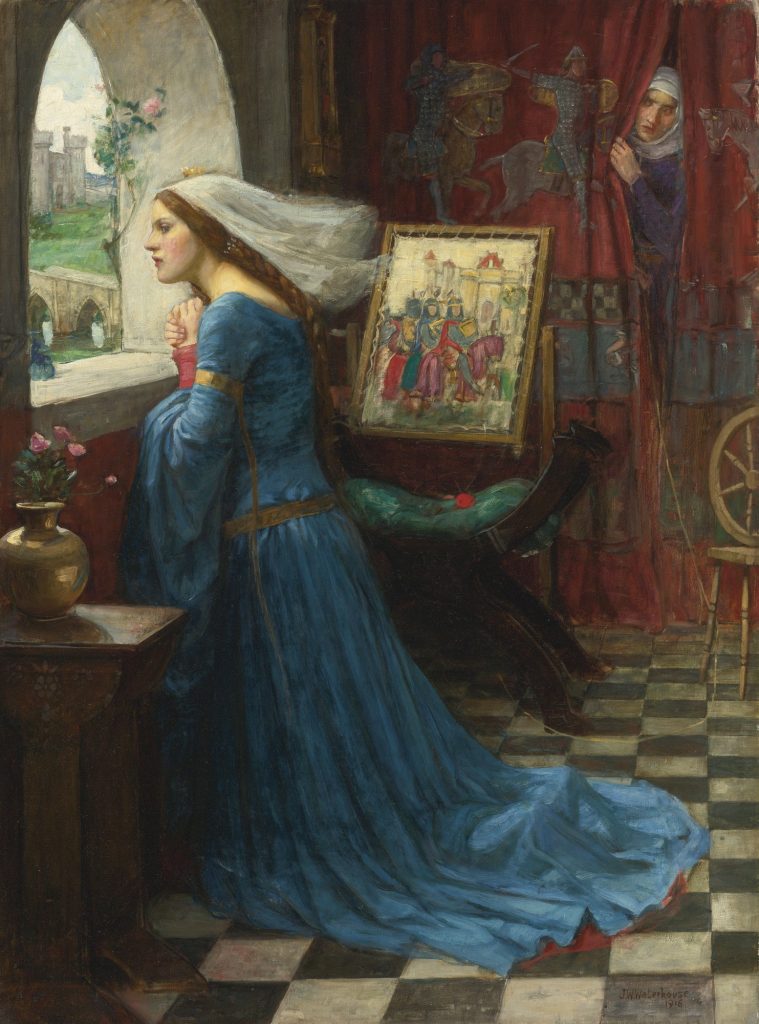
I became interested in the reputations of English queens during my undergraduate degree. I wrote my BA dissertation on the representation of Elizabeth of York, and my MA dissertation on the posthumous representation of Eleanor of Aquitaine.
Prof. Lorraine Martin
Professor, School of Pharmacy | l.martin@qub.ac.uk | ORCID iD: 0000-0002-1923-0610 | PURE: https://pure.qub.ac.uk/en/persons/lorraine-martin | Linked in www.linkedin.com/in/prof-slorrainemartin |Twitter: @Prof_SLMartin
What is your research about?
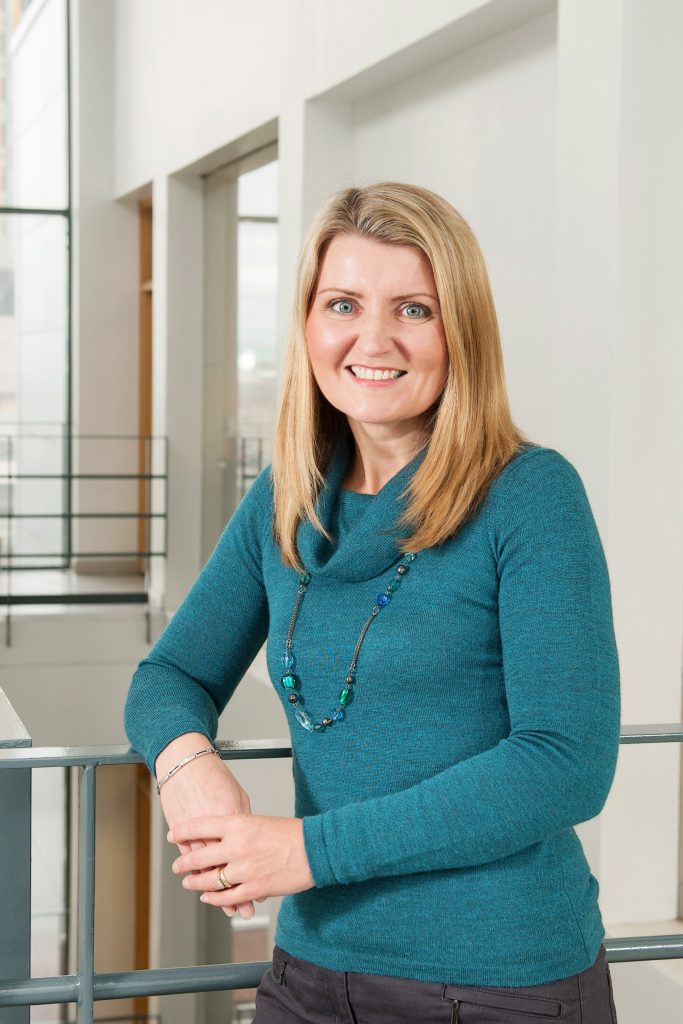
My research focus is in the area of chronic airways disease which includes diseases such as cystic fibrosis and chronic obstructive pulmonary disease (COPD).
Within Queen’s I am lead investigator on the BREATH project funded by INTERREG Va which is managed by the Special European Union Programmes Body (SEUPB). In 2017, myself and QUB colleagues, Dr Fionnuala Lundy and Professor Lorcan McGarvey (co-PIs) were successful in our application, along with partners Dundalk Institute of Technology and University of the West of Scotland, to gain funding to support a multidisciplinary, cross-border, collaborative research and training programme to build research capacity in the area of COPD. BREATH (Border and REgions Airways Training Hub), an €8 m project, supports 9 core PIs however a further 15 multi-disciplinary academics and clinicians are affiliated with BREATH from across QUB, Ulster and UWS.
BREATH directly funds 8 post-doctoral research fellows, a research technician and assistant and 16 PhD studentships (from the UK, Europe, Asia and Middle East), with a further 4 UWS-matched PhD students.
Uniquely, the three partners have expertise which covers the key features of COPD from smooth muscle (DkIT), epithelial (Martin, Pharmacy) and neuronal (Lundy & McGarvey, WWIEM) cell biology to chronic inflammation (UWS); McGarvey also provides clinical leadership to the programme. BREATH have a number of industry partners and the provision of 4-year studentships has also allowed time for the students to develop the “BREATH Challenge”, an outreach programme to promote lung health in primary schools.
BREATH has been showcased at the European and Scottish Parliaments which has served to further increase awareness of the personal and regional health burden associated with COPD. BREATH won the NI Healthcare Award for Asthma/COPD Project of the Year in 2018 and more recently, the Vice-Chancellor’s Prize for Excellence in Research Culture in 2020.
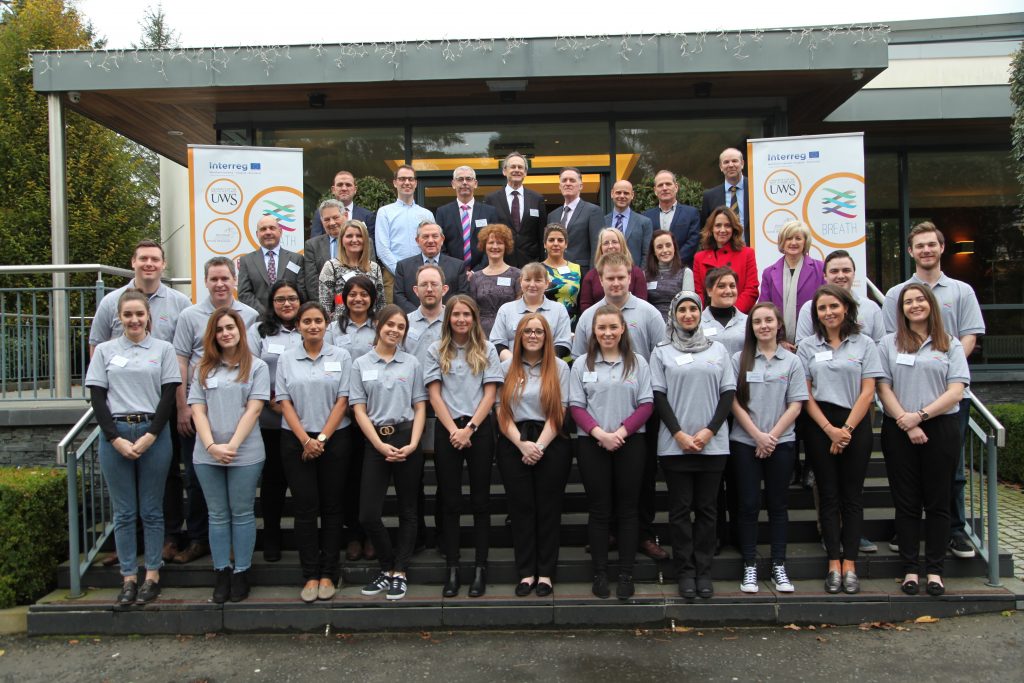
What sparked your interest in this topic?
I am interested in this topic as COPD is an incurable progressive disease associated with irreversible lung tissue damage and a progressive decline in lung function. It is a disease of regional burden and global significance and although it is the third leading cause of death worldwide, it still remains under-investigated and mis-understood.
Heather Johnson
Senior Lecturer, School of History, Anthropology, Philosophy and Politics | h.johnson@qub.ac.uk | Twitter: @drheatherj
What is your research about?
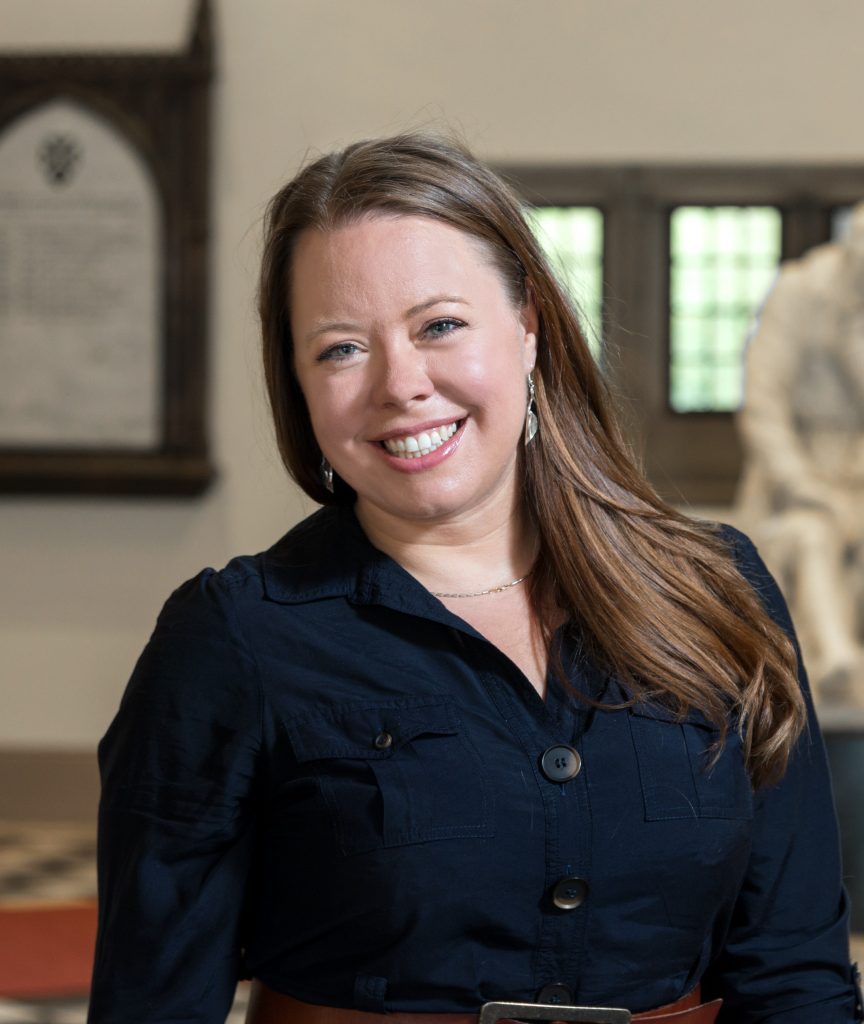
I am interested in undocumented and irregular migration and non-citizenship, with a focus on the voices and narratives that we don’t usually hear from refugees and asylum seekers.
I’m interested in how we can challenge the dominant structures of oppression that have shaped borders and migration policies and practices, and how migrants themselves are also challenging the regimes that shape their lives.
I’m working on two major projects at the moment. The first is a deep dive into the history and current experience of migration by boat. I’m looking at the issues of responsibility
and sovereignty at sea, and what that has meant for how we understand and practice border controls.
I draw on field research in Spain, Greece, Australia and Canada, considering migration in the Mediterranean and Aegean Seas and the Pacific Ocean. I’m asking questions about the impacts of the sea and responses to boat migration on international and domestic refugee policies and the actual lived experiences of those who are travelling by boat to safety.
My second project is a visual exploration of the representation of refugees and migration, and how it can be seen and understood through the material infrastructures of borders. I’m looking at detention and reception centres, and border ports and crossings, through the messages about migration and migrants that that their physical and material construction convey. I am also considering how pictures of these places reinforce or challenge these messages.
What sparked your interest in this topic?
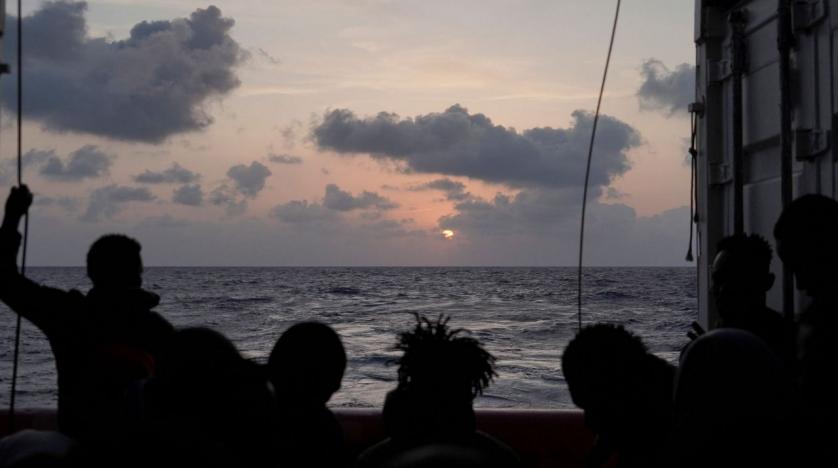
I’ve been thinking about who is left out and who can’t access their rights since I was in High School in Canada, when I was very committed to access to education.
Later, I did some supply teaching in a High School in Toronto and met some first generation immigrant kids, some of whom were refugees – and I carried their stories with me into my undergraduate degrees. These questions have stayed with me ever since!
Rachel Newell
PhD Candidate, School of History, Anthropology, Politics and Philosophy, rnewell05@qub.ac.uk
What is your research about?
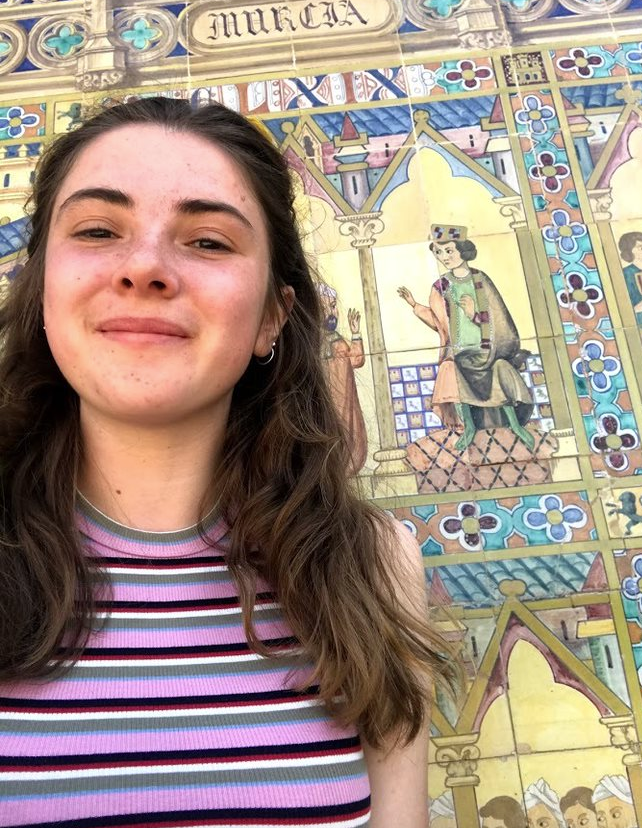
It is rare to get an insight into the daily lives of ordinary people in the past, they rarely left marks which entered the historical narrative and thus their lives, opinions and realities remain a mystery to us. However, through depositions made by witnesses of crimes and the statements of the alleged criminals themselves an image of life in not only late-Victorian and Edwardian Belfast (1880s-1930s), but the surrounding rural areas and counties that would come to constitute Northern Ireland emerges. My research focuses on crime but also on the relation of crime to society. It investigates contexts of poverty but also its impact on mental health and family relationships. The agency of women in the past is illuminated in cases of bigamy which involve escape from domestic abuse and in young women committing daring thefts through false pretences. It offers insight into courtship and relationships, sex work, employment and the work place, education, parenthood and institutionalisation, topics which are timeless though often difficult to explore within the past. The ability to investigate the voices, lived experiences and emotions of women in the past also comes during a tumultuous period of local, national and world history that is often focused on male or masculine coded experiences. Beyond this, it illuminates the links between women, crime and society that existed in the past and the change or lack of between our current reality.
What sparked your interest in this topic?
The ability to study the lives of women who don’t make it into a lot of the history we see, read and learn and how relatable many of the issues they faced then still are today.
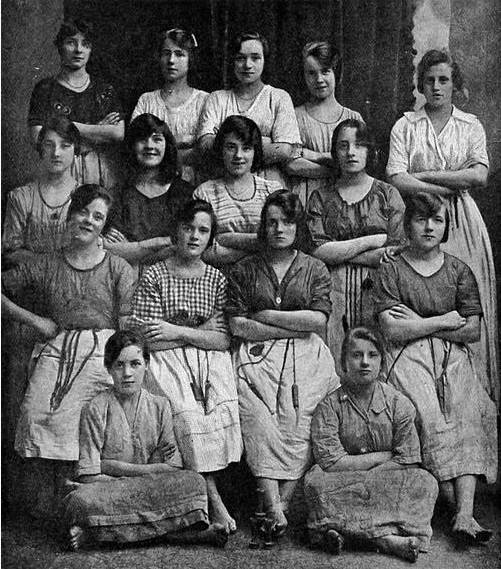
Keysha Jaime
PhD Candidate, School of History, Anthropology, Politics and Philosophy, kjaimeorona01@qub.ac.uk | Twitter: @kjaime28
What is your research about?
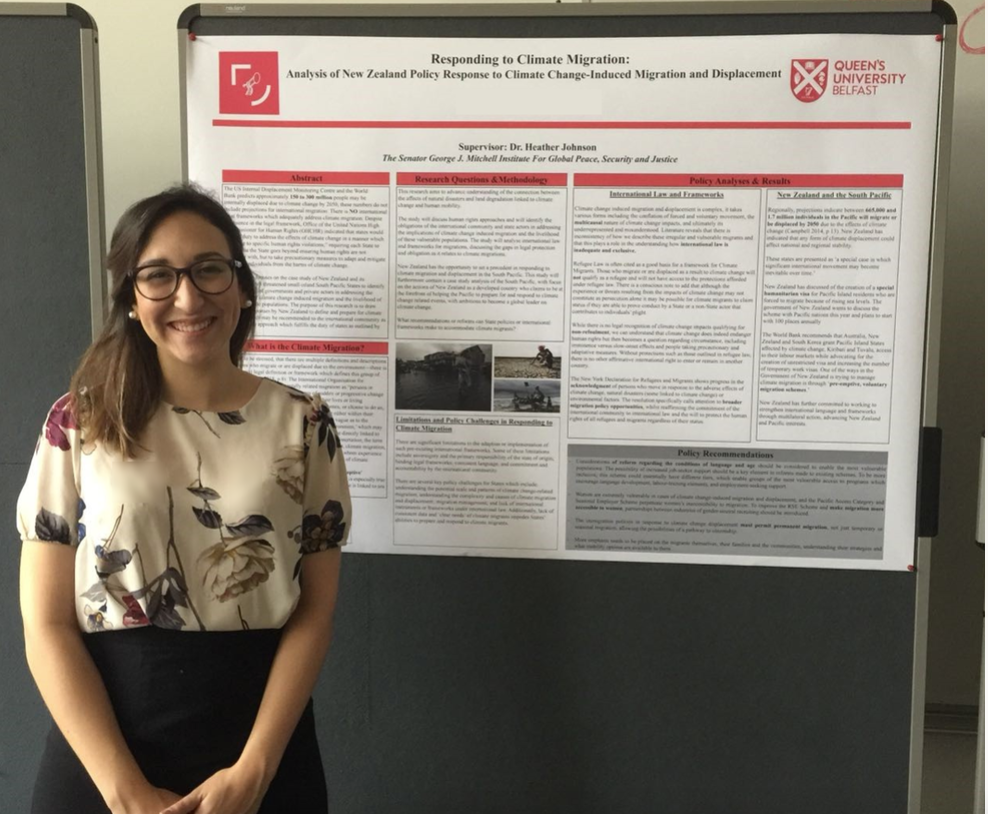
Environmental degradation exposes the most vulnerable in the world to impacts which threaten lands, cultures and livelihoods. My research explores the relationship between climate change and human mobility, with a specific focus on the South Pacific, a region that is already experiencing migration and displacement due to conditions which include: increasingly intense weather events and natural disasters, droughts, ocean acidification and a projected sea level rise, which may make these islands and territories uninhabitable. To explore this relationship, I am consulting with communities and local perspectives in the South Pacific to better inform policy-making decisions regarding climate migration. This research recognizes the value in the voices of Pacific people and those experiencing migration and displacement as essential to implementing policy which adequately accommodates their needs and helps them build resilient communities.
What sparked your interest in this topic?
Being originally from the island of Puerto Rico, I am extremely aware of the vulnerabilities which small island States face when regarding extreme weather patterns which have in recent years been intensified by the climate crisis. Hurricane Maria devastated Puerto Rico in 2017, taking more than 4,000 lives and pushing estimated figures of 135,000 to leave and seek relocation in the United States. In many ways, this served as a catalyst for my research and passion for climate action, justice and resilience. It is my hope that this research amplifies the voices of those impacted by the impacts of climate change.
Meg Schwamb
Lecturer, School of Mathematics and Physics, m.schwamb@qub.ac.uk | ORCID iD: 0000-0003-4365-1455 |Twitter: @megschwamb
What is your research about?
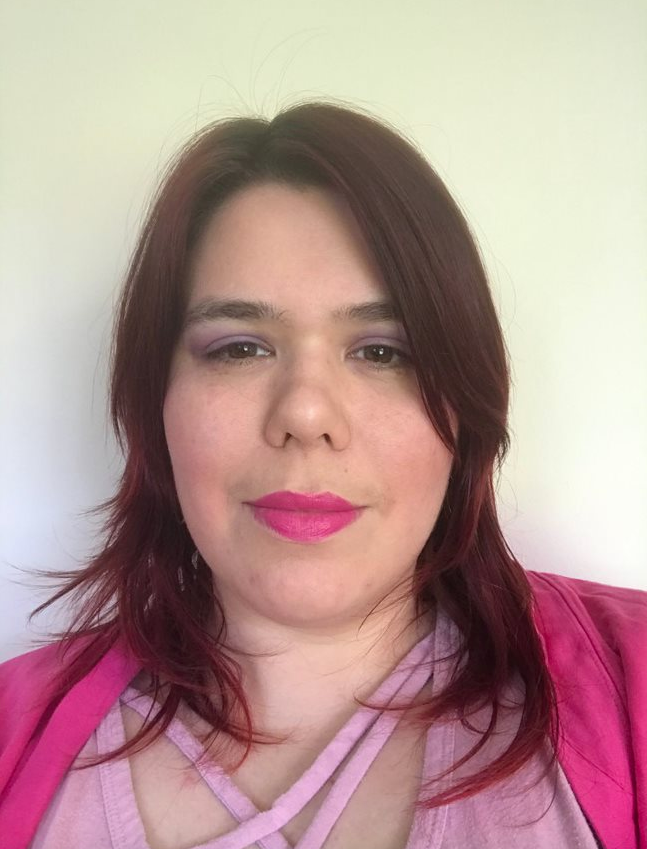
My research focuses on how planets and their building blocks form and evolve, applying ground-based surveys to probe our Solar System’s small body reservoirs. I am currently using observations in multi-coloured optical and near-infrared filters to explore the surface composition of Kuiper belt objects, icy planetesimals orbiting beyond Neptune. I also serve as co-chair of the Rubin Observatory’s Legacy Survey of Space and Time (LSST) Solar System Science Collaboration (SSSC). Rubin Observatory is currently under construction in Chile. Starting in ~2023, the telescope will be equipped with the world’s largest camera. Over a ten year period, LSST will discover and monitor millions of Solar System small bodies. LSST will find tens of thousands of new Kuiper belt objects (KBOs) and thousands of new comets; approximately ten times the number of planetesimals discovered by astronomers to date. As co-chair of the SSSC, I helping to prepare planetary community to be ready for the data deluge when LSST begins operations.
What sparked your interest in this topic?
Every since I was a little girl, I’ve been interested in astronomy and learning more about the Solar System and the universe. Today, I’m really interested in putting together different pieces of evidence to explore the history of our Solar System.
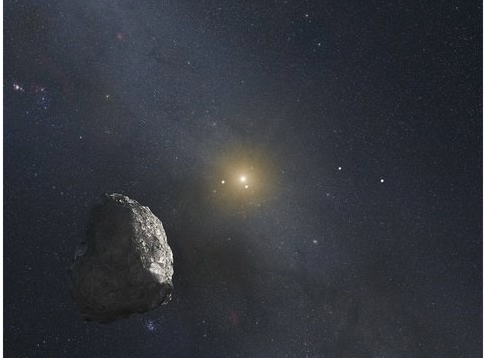
Colette Casey
LINCS Doctoral Scholar, School of History, Anthropology, Politics and Philosophy, ccasey01@qub.ac.uk
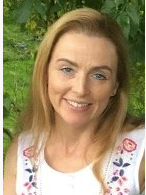
What is your research about?
Working Title: Emotions and Fake News
While disinformation has always existed, my research explores the cultural shift brought about by the form of ‘fake news’ that emerged from the 2016 US election. Specifically, the impact for journalists in Northern Ireland. The role of emotion in news production will be investigated to inform how emotion recognition technology might advance disinformation detection strategies. As a LINCS interdisciplinary project, this research interlinks social science and computer science. Accordingly, I am following an exploratory sequential mixed methods design. My current ethnographic research will form the basis of the study and inform the future natural language processing (NLP) direction of the work. The project will take a constructivist approach, drawing on discourse analysis and theories of affect and emotion. The COVID-19 pandemic necessitates a focus on digital ethnography. I am conducting my interviews with Northern Ireland based journalists online. As journalism has also embraced the digital interview for day-to-day business, the medium is working well with my participants. Hearing from working journalists is beneficial to evaluating the effects of disinformation on the profession. Specific to Northern Ireland, is defining the impact for a society where issues of truth and trust in the media already existed.
What sparked your interest in this topic?
Disinformation is gaining power as a destructive force in modern society, endangering many crucial aspects, including health, cyber security and democracy. Media and technology play key roles in how disinformation disseminates and narratives develop. I’m interested to explore how these factors interact and what measures might help counteract the most negative consequences.

Katie Tate
PhD Candidate, School of History, Anthropology, Politics and Philosophy, ktate01@qub.ac.uk
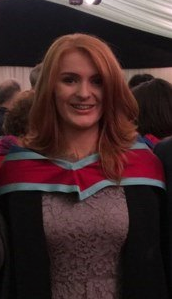
What is your research about?
One hundred years after the establishment of Northern Ireland, the duchess of Abercorn, Lady Granville, Lady Wakehurst, Lady Erskine and Lady Grey, the five women who served as wives to the governors of Northern Ireland between 1922 and 1973, remain absent from the historical narrative. By virtue of their elevated position as governor’s wife, however, several of these women made significant contributions to public life during their time in Northern Ireland and these contributions must be recognised. Significantly these women did not hold an official title or an official role during their time as wife to the governor as their husband was the official appointee. These women thus acted in an unofficial capacity to represent the British monarch alongside their husband. Through this, they enjoyed an unofficial leadership role in Northern Ireland, and they remained leading figures in society throughout the fifty-year duration of the governorship. The feminine influence of these five women was regarded as adding an extra dimension to the image of the governorship and these five women utilised their position at the apex of social life to promote a positive public image for the governorship, in a country that remained divided between those wanting a united Ireland and those wanting to maintain their links with Britain. Adopting an unofficial leadership role throughout Northern Ireland, these five women became patrons and Presidents of various organisations, allowing them to make significant contributions to the public life of Northern Ireland during their respective time in Government House. This included the Duchess of Abercorn’s Presidency of the Ulster Gift Fund during the Second World War and Lady Wakehurst who established the Northern Ireland Association for Mental Health (Niamh) during her time in Northern Ireland, the services of which exist in Northern Ireland to the present day. Despite their unofficial role, these women thus made the governorship more successful and impactful than it may otherwise have been.
What sparked your interest in this topic?
My interests have always centered on the social history of Northern Ireland in the twentieth century, looking at the landed elite and their country houses, with a focus on gender. My PhD thesis, looking at these five women who acted as wives to the governors in Northern Ireland, allows me to further my study of elite figures throughout twentieth century Northern Ireland. As these women have never been the subject of an academic study in this capacity, the potential to include their stories in the historical narrative was something that sparked my interest in this topic.
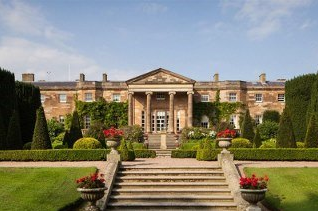
John Mooney
PhD Candidate, School of History, Anthropology, Politics and Philosophy, jmooney04@qub.ac.uk
What is your research about?
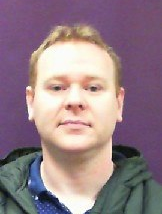
The agency of women within Post-Agreement Loyalism with a specific focus on the role choice, consciousness and power plays in the formulation of loyalist women’s identity. The research focuses on the non-violent elements of Loyalism as this has tended to be overlooked within previous studies coupled with the perception that loyalist women have little agency due to previous academic work which has focused so heavily on the loyalist paramilitary elements of the Loyalist identity in general.
What sparked your interest in this topic?
A previous role within the Women’s Sector highlighted the gap of study in relation to loyalist women.
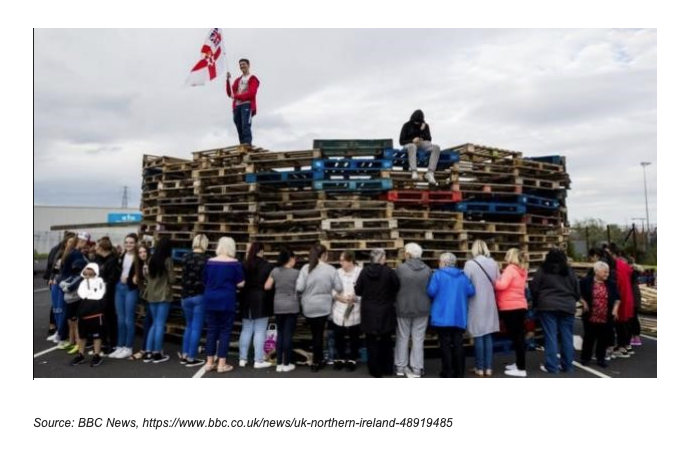
Paula Reimer
Professor and Director of the 14CHRONO Centre, School of Natural and Built Environment p.j.reimer@qub.ac.uk | ORCID iD: 0000-0001-9238-2146 14 | chrono.org | IntCal.org
What is your research about?
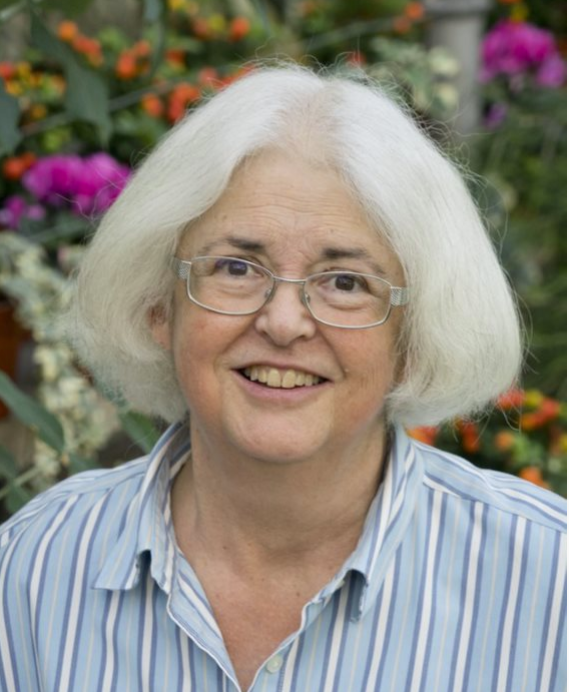
As Director of the 14CHRONO Centre for Climate, the Environment and Climate my research interests align well with the Centre’s remit and focus on carbon in both modern and past environments and as a chronological tool. Much of my work has focused on extending and refining the internationally ratified radiocarbon calibration curves which are produced from independently dated material such as tree-rings and corals by the IntCal Working Group which I chaired from 2002-2020. These curves are used by geoscientists and archaeologists to correct radiocarbon ages for the variability of atmospheric or marine 14C in the past. The curves also provide information on solar variability, ocean circulation and geomagnetic field changes over the past 55,000 years. Updated curves for the Northern and Southern Hemispheres and the surface ocean were published in 2020. In addition, I investigate marine and freshwater radiocarbon reservoir offsets which affect the accuracy of radiocarbon dates of samples from these environments and those of humans and animals with an aquatic component of the diet. I am also interested in the source of carbon in lake and marine sediments, how the source affects the radiocarbon age and whether the carbon will be stored or released to the atmosphere as a greenhouse gas under changing climate conditions.
What sparked your interest in this topic?
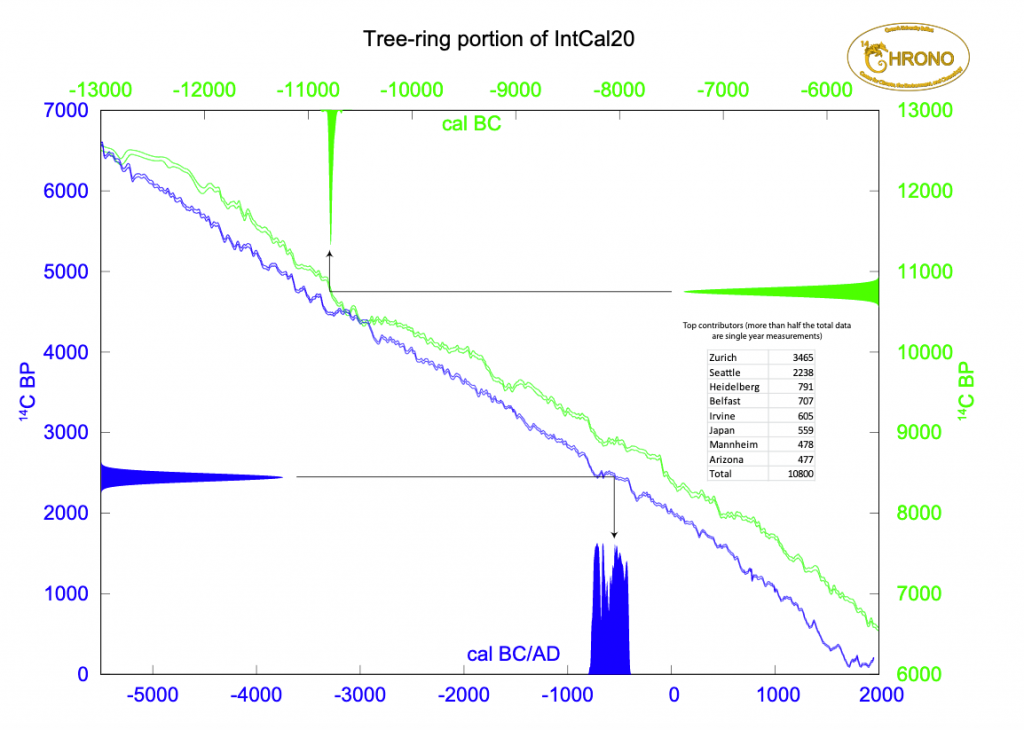
My first job after my MSc was in a radiocarbon dating laboratory at the University of Washington.
Jamie J. Hagen
Lecturer, School of History, Anthropology, Politics and Philosophy j.hagen@qub.ac.uk | ORCID iD: 0000-0002-0998-9359
What is your research about?
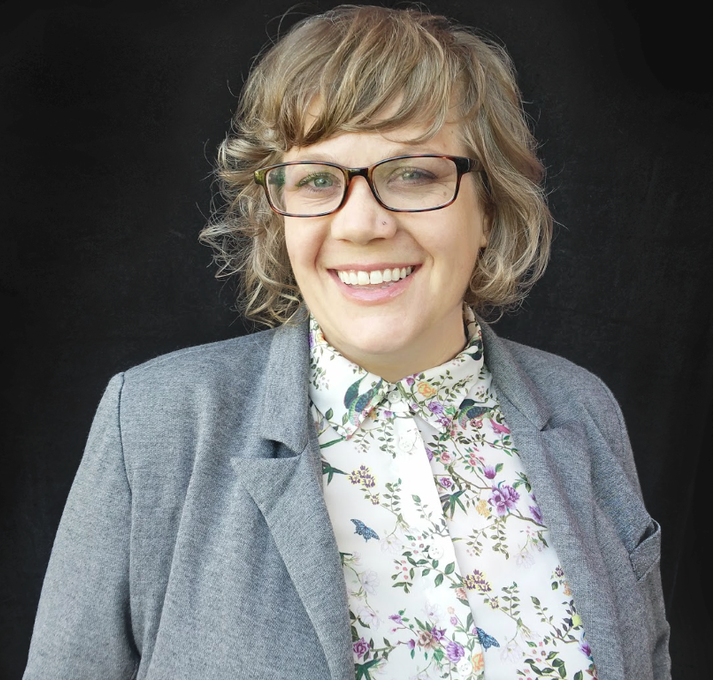
With my research I bridge a feminist security studies approach with queer theory to offer a more complete gender analysis of how the implementation of the Women, Peace and Security (WPS) resolutions impact lesbian, bisexual and transgender women living in conflict-related environments. The central contribution of my research is a queer security analysis of women’s experiences in conflict-related environments. I am also interested in considering how best to include, listen to and prioritize LGBTQ (lesbian, gay, bisexual, transgender and queer) individuals in peacebuilding initiatives in post-conflict environments. Alongside this research I’m interested in thinking about how queer and trans activists understand peace and security. I am also the founding co-director of the Centre for Gender in Politics with Maria-Adriana Deiana. The Centre for Gender in Politics serves the growing community of feminist scholars and activists in international studies who apply a gendered lens to understand challenges in global politics. Research conducted at the Centre investigates the centrality of gender, in intersection with other categories such as race, class, sexuality and ability, in shaping local, national and global dynamics. The Centre aims to promote interdisciplinary and cross-faculty dialogue at Queen’s. With our events, research and publications we seek to engage with policymakers and sustain connections with the wider community of feminist and LGBTQ+ activists and cultural organisations in Belfast and beyond.
What sparked your interest in this research topic?
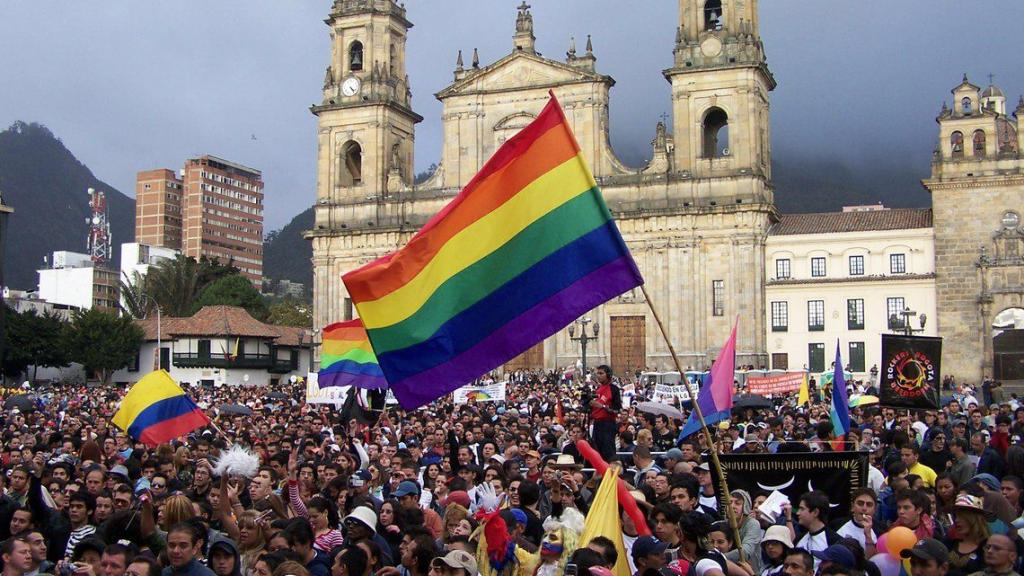
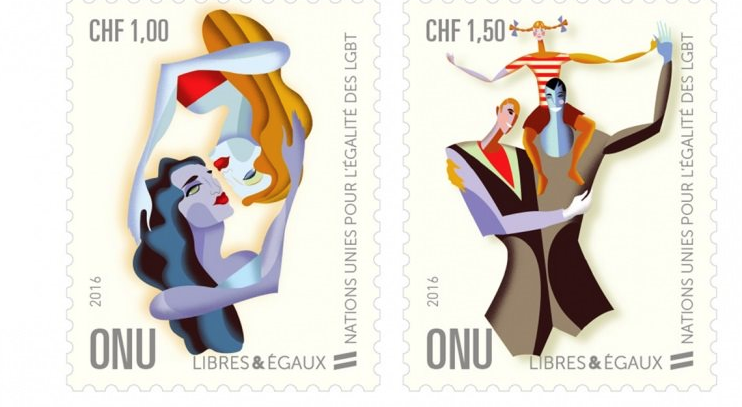
I was first inspired to start applying queer theory to WPS after working with a couple of civil society organizations and being fascinated by the space that this agenda has opened up yet being troubled by not seeing LGBTQ organizations active there. When I saw this gap in attention to queer lives, even in groundbreaking international civil society work to promote women’s rights, I asked what could help explain why this was happening. I’ve learned it is in large part an issue of translation and bridging between siloed communities. The thing that I find so fascinating – and infuriating – in my work is knowing that lesbian, bisexual, and transgender women have always been in spaces where gendered violence occurs, as well as organizing to respond to it, yet this is erased or somehow made invisible. In fact, when you look at the mainstreaming of women’s rights activism through the UN, lesbian feminists have been involved from the beginning.
Leila Moura
Royal Academy of Engineering Research Fellow, School of Chemistry and Chemical Engineering l.moura@qub.ac.uk | ORCID iD: 0000-0002-7938-5892
What is your research about?
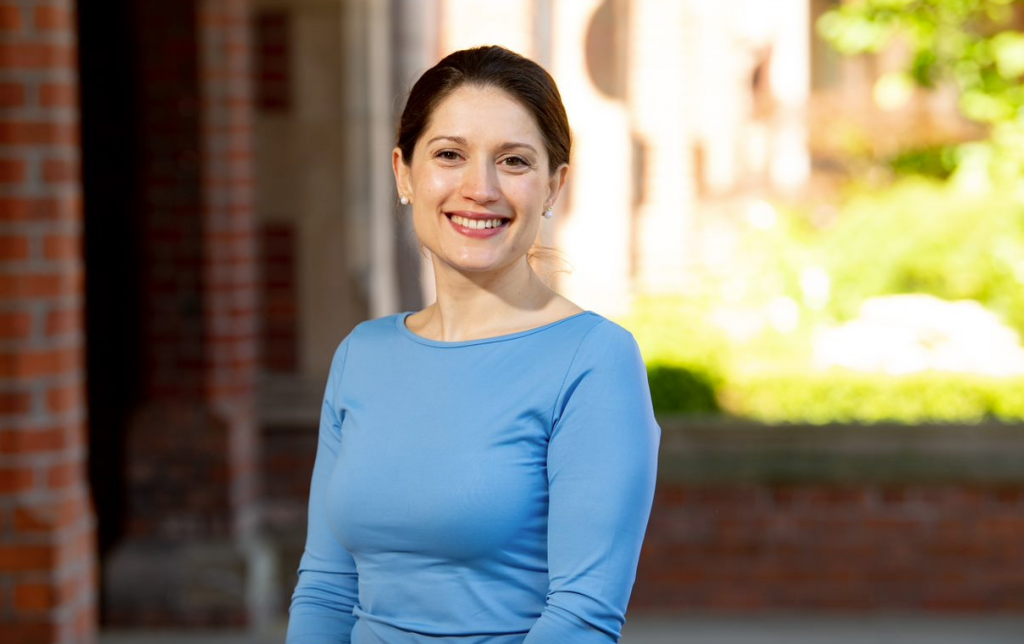
My research interest is to develop sustainable processes for gas separations and capture. Separation processes account for 10-15% of global energy consumption and some of the hardest ones to perform are related to gases. For example separating alkenes from alkanes is considered one of the “7 chemical separations to change the world”, as it accounts for 0.3% of global energy use. I hope to develop a sustainable process to recover these building blocks that go into making many everyday products. They are gases (like gas for heating and cooking!) used to produce drugs, lubricants, nappies, clothes and pipes! Their separation requires the equivalent of 30 months of UK electric energy demand, creating a big carbon footprint. I am also working on developing technology for the capture of important greenhouse gases such as carbon dioxide and methane. I am developing ionic liquids (imagine liquid salt!), among other materials that will allow us to easily recover the gases using little energy.
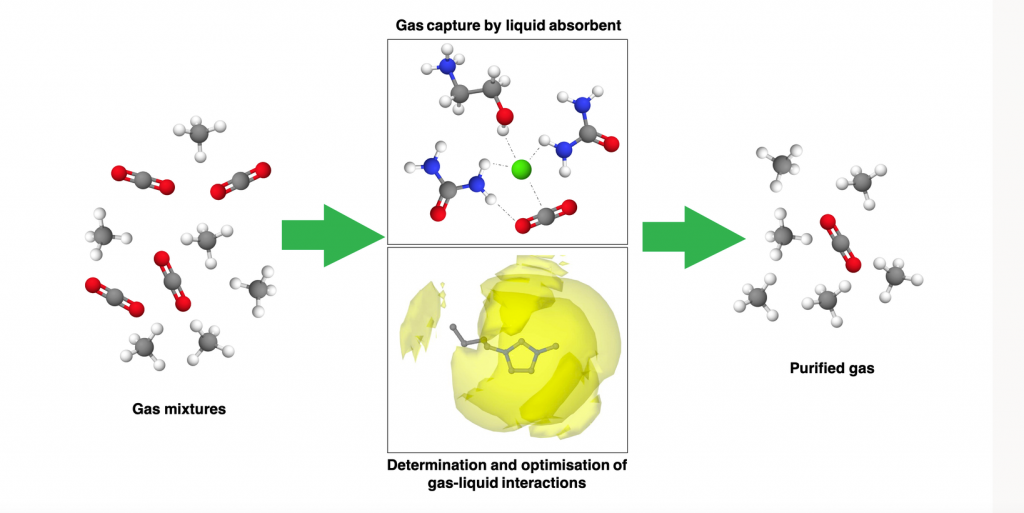
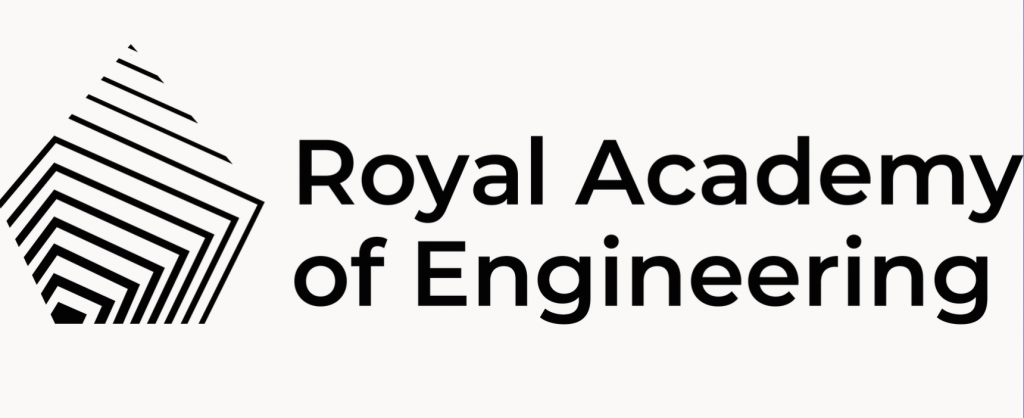
What sparked your interest in this topic?
I find it fascinating to think of ways to capture “invisible” but extremely impactful gases
Sarah Curry
PhD Candidate, School of History, Anthropology, Philosophy and Politics scurry10@qub.ac.uk
What is your research about?
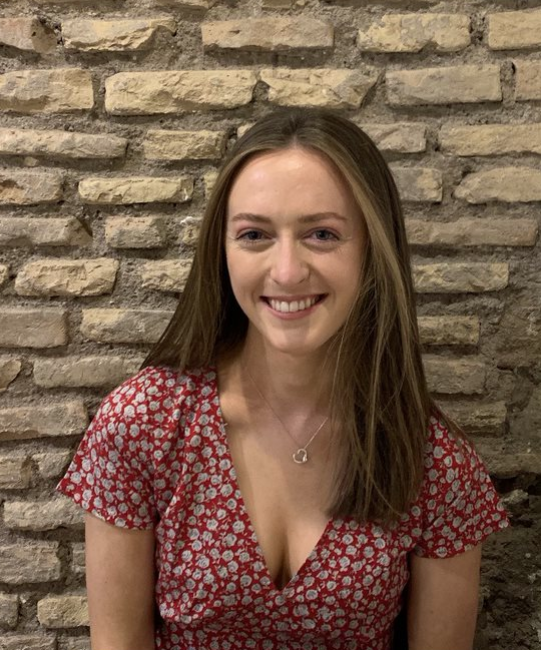
My research project in set in Cold War America, specifically the 1950s and 1960s, and focuses on the intersections between racism, anti-communism and gender within the period. These issues are explored through my research on the Women of the Ku Klux Klan and the Minute Women of the USA. My research project explores how women functioned in white supremacist and anti-communist organisations, to become integral parts of these wider movements during the Cold War.
What sparked your interest in this topic?
My research for my MA dissertation on McCarthyism led me to this topic
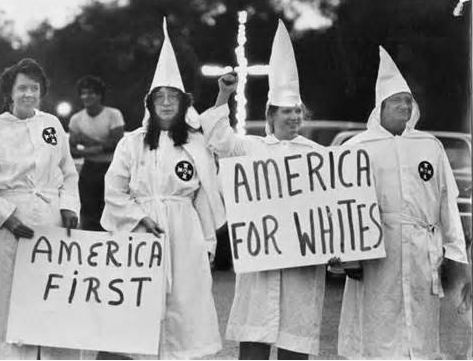
Elaine Farrell
Senior Lecturer, School of History, Anthropology, Philosophy and Politics e.farrell@qub.ac.uk | https://orcid.org/0000-0003-0413-413X | Twitter: @elaineffarrell | Blog: https://badbridget.wordpress.com/
What is your research about?
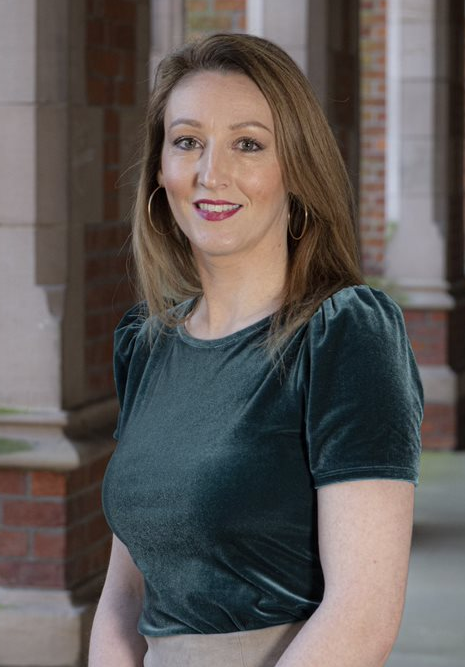
The Bad Bridget research project, which I lead with Dr Leanne McCormick (Ulster University), examines criminal and deviant Irish women in North America, from 1838 to the end of the First World War in 1918. We examine Irish women’s participation in sex work, the diversity of criminal activity in which they were involved, and their overrepresentation in prisons and courts of North America. The stories are heart-breaking, showing the poverty, misfortunate and bereavements that affected Irish women abroad. But the stories also convey women’s agency, their humour, their complete disregard for authority, and their resourcefulness.
What sparked your interest in this topic?
Over the past few years I had researched a lot on Irish women’s crime in Ireland and I wanted to explore the similarities and differences abroad. I’m always drawn to the stories that offer insight into lived realities.
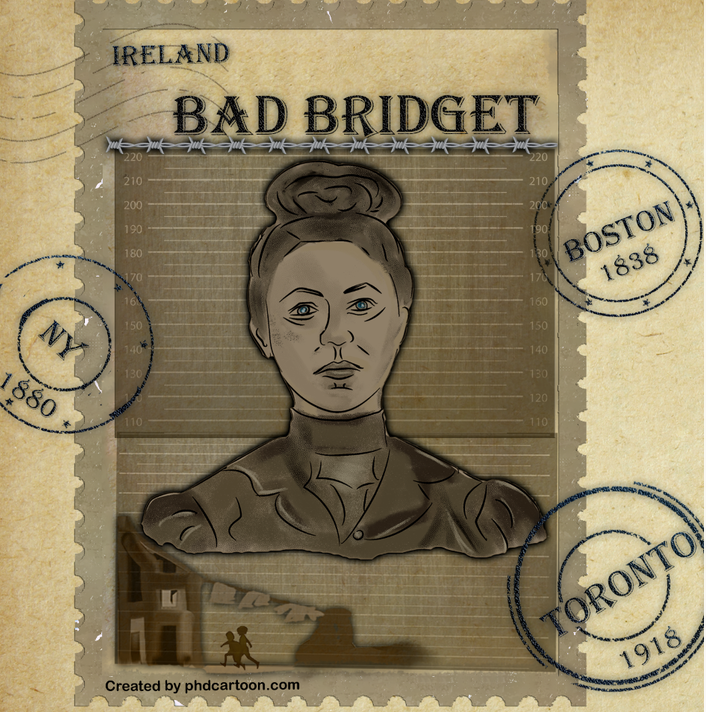
Diane Urquhart
Professor, School of History, Anthropology, Philosophy and Politics D.Urquhart@qub.ac.uk
What is your research about?
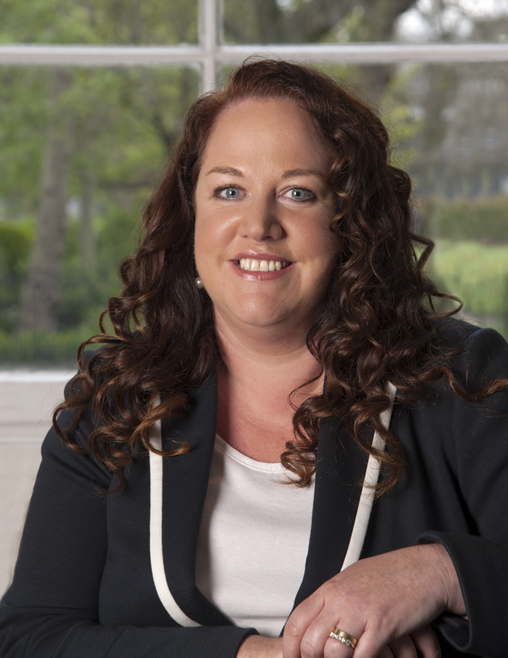
I am currently working on the first full-length study of criminal conversation, the legal action whereby a husband could bring a case for monetary damages against a man his wife had committed adultery. Popularly known as crim. con, the process was based on trespass and, as women were legally seen as the property of their husbands, was only available to men. Indeed, it was only from the 1890s that a woman could give evidence in such cases. Damages awarded in crim. con. trials highlight that not all wives were considered of equal value. Damages awarded in Irish cases vary from a farthing to £20,000, the amount depending on the alleged purity of the woman, her station in life and what her alleged infidelity denied her spouse. Crim. con. hearings attracted considerable attention and proceedings were often subsequently published, serving both to titillate readers with tales of sexual misdemeanours and as a moral warning to those who might stray from the marital bond. Within the UK the practice existed in England, which included Wales in its jurisdiction, and in Ireland, but the Divorce and Matrimonial Causes Act of 1857 ended the crim. con. action although its spirit lingered in the damages which could be claimed from a co-respondent in court until 1970. Crim. con. was abolished in Northern Ireland in 1939 but remained in the Republic of Ireland until 1981 and far from being a defunct legal action, cases continued to be brought in the twentieth century.
What sparked your interest in this topic?
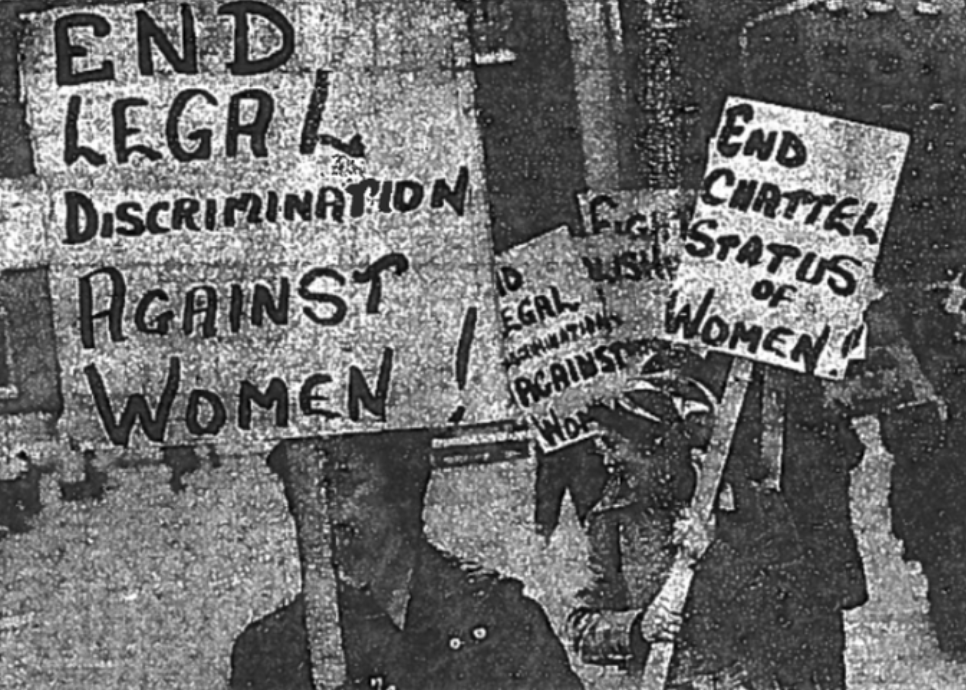
I have a long-standing interest women’s history, processes of legal reform and the sexual double standard whereby different laws and customs applied to men and women. The criminal conversation legal action tells us so much about how women, especially married women, were viewed and how, even within the United Kingdom, a multiplicity of laws applied.
Olwen Purdue
Senior Lecturer, School of History, Anthropology, Philosophy and Politics o.purdue@qub.ac.uk | Twitter: @opurdue
What is your research about?
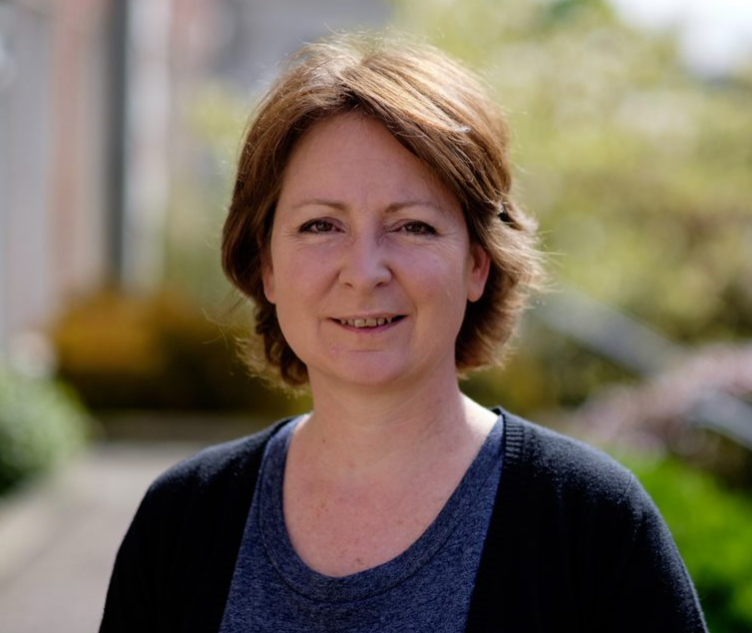
I work on urban poverty, welfare and public health in late nineteenth and early twentieth-century Ireland, with a particular focus on how people in poverty understood, experienced, and contested the welfare systems on which they depended. I’m in the process of submitting the manuscript for a monograph on child welfare in industrial Belfast, which looks at how children and their families experienced poverty, the varied ways in which they engaged with the Poor Law in order to survive, and how evolving welfare ideologies and practices facilitated the surveillance of poor families, and am working on an article on how the unemployed of 1930s Belfast and Dublin articulated their poverty in order to access help. I am also interested in how people today understand, consume and engage with their past and those of others and in the relationship between history, heritage and wellbeing. With this hat on, I am currently working on a project in Dhiban, Jordan, working with local, marginalised communities to explore new ways of telling their stories. I am also developing a new public history project on spaces of working-class life in divided cities with partners in the US and South Africa.
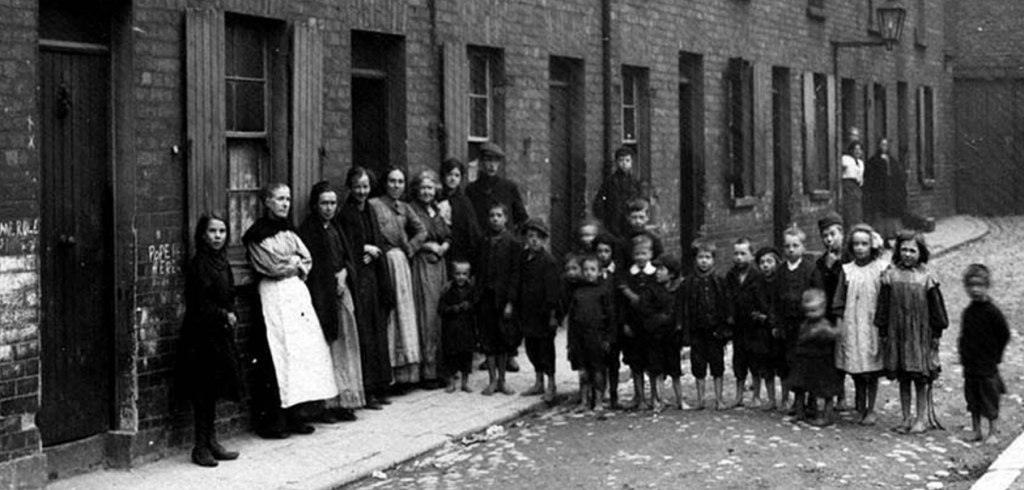
What sparked your interest in this topic?
I’ve always been interested in how different social groups understand, negotiate and articulate their positions, access to resources, or identit(ies). This underpins my work on social history and is increasingly driving my interest in public history, around who gets to tell their stories, how, and where.
Keira Williams
Senior Lecturer, School of History, Anthropology, Philosophy and Politics k.williams@qub.ac.uk
What is your research about?
I’m currently writing a book on feminism and pop culture in the US South in the 1980s and 1990s. In it, I explore literature, television shows, and films–for example, the novel The Color Purple, the film “Thelma & Louise,” and Oprah Winfrey’s daily television show–that offered multiple versions of progressive gender politics from a region and during a time in which feminism was in short supply.

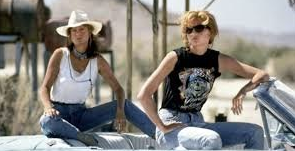
What sparked your interest in this topic?
I came of age as a southern feminist during this time. In fact, I’m pretty sure I learned the word “feminism” from the television show “Designing Women,” which I examine in the third chapter of the book.
Sparky Booker
Lecturer, School of History, Anthropology, Philosophy and Politics s.booker@qub.ac.uk
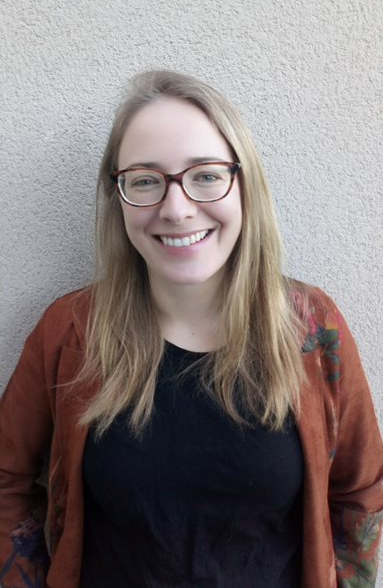
What is your research about?
My research focuses on the social history of medieval Ireland; I’m interested in identity, law and the lives of people who were in some way marginalised. This includes the Irish who lived in the English colony in Ireland, women and non-elites. I’ve investigated these groups and their experiences by looking at things like intermarriage, language use, naming, fashion and hairstyles and the role of the church in mediating interactions across the ethnic divide.
What sparked your interest in this topic?
I’ve always been drawn to the medieval period and the fascinating way in which it can seem very familiar in some respects and quite strange in others. I really enjoy working on medieval Ireland and being able to visit many of the sites and regions I look at in my work.
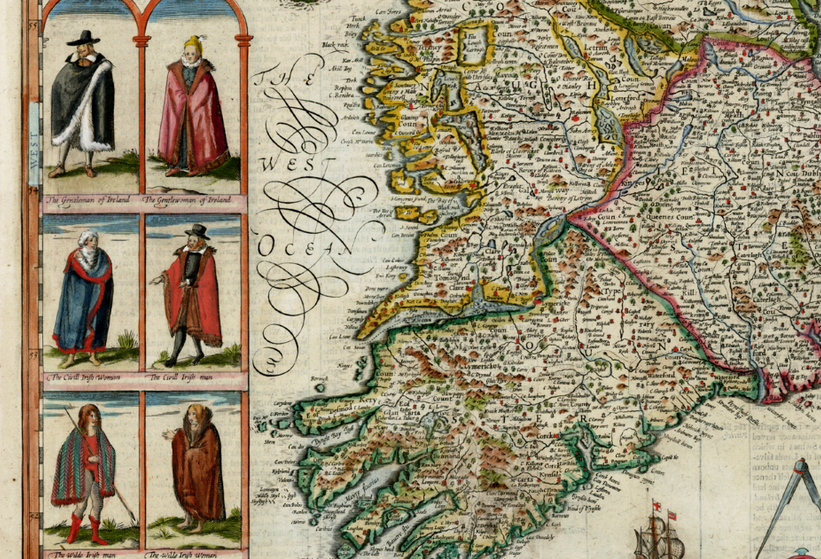
Amanda J. Lubit
PhD Student, School of History, Anthropology, Philosophy and Politics alubit01@qub.ac.uk | ORCID iD: 0000-0003-3368-4018 | https://www.linkedin.com/in/amandalubit/ | https://www.researchgate.net/profile/Amanda-Lubit | Twitter: @AmandaLubit
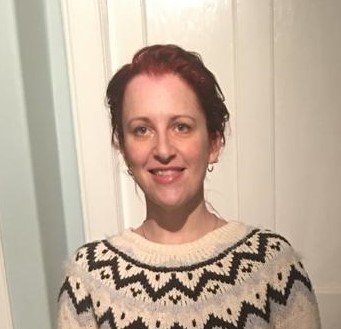
What is your research about?
As part of my PhD research on Muslim women living in Belfast, I spent a year engaging with a women’s group established by and for women asylum seekers and refugees. Although several organisations in Belfast cater to asylum seekers and refugees, the spaces they offer are often crowded and male-dominated. As one Sudanese woman explained, “we couldn’t socialize over there. It’s a very small building and it’s full of men, crowded… You won’t be yourself.” In response to this problem, a group of women worked together to create a women-only space which I call Sadiqa (in Arabic, Sadiqa means friend).
Renting a building two days a week, Sadiqa offers women a safe space to come together and engage in a number of practical and pleasurable activities (e.g. English classes, yoga, Zumba, sewing, driving and cycling courses) while free childcare is provided. The women speak many different languages and come from different backgrounds like Sudan, Nigeria, Zimbabwe, Eritrea, Iran, Iraq, Syria, Somalia and other countries.
Many women have come to consider the space a type of home, where they socialize, cook, and care for children; a place to communally celebrate the joys in life like graduations and new births, and to provide support during difficult times like illness and death. It is more than a space. It is a manifestation of their desire to make a place for themselves in Belfast. While public discourses commonly label women asylum seekers and refugees as passive and powerless victims of displacement, the women of Sadiqa counteract these stereotypes. Despite the immense difficulties they face, they continue to persevere, actively working together to overcome everyday restrictions and barriers.
While they cannot change the larger forces that structure their lives (e.g. their displacement and the UK asylum system), together they have developed strategies to manage the impacts these structures have upon their lives. By creating Sadiqa, they have worked within their limitations to create something new that belongs to them; a space where they can be themselves and reduce some of the suffering and difficulty inherent to life as an asylum seeker.
What sparked your interest in this topic?
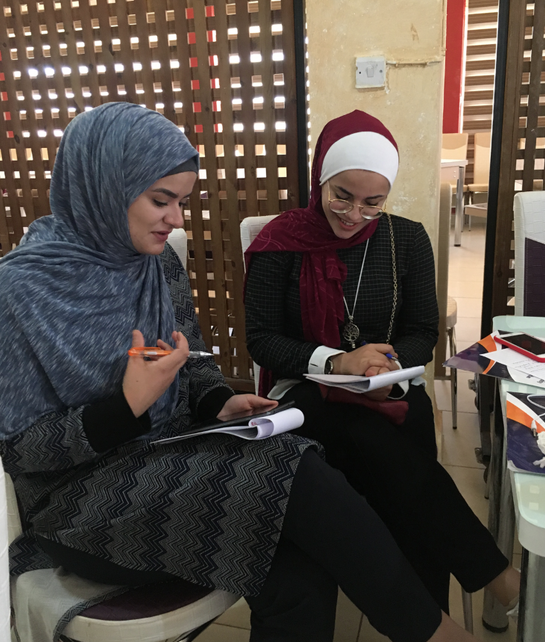
My broader research focuses on the daily experiences of Muslim women living in Belfast, and through that work I became aware of and interested in the women’s group.
Eileen Murphy
Head of Discipline: School of Archaeology and Palaeoecology, School of Natural and Built Environment | eileen.murphy@qub.ac.uk

What is your research about?
Mother-Infant Death in Historic Ireland. The discovery of a pregnant woman and the remains of her unborn baby is a poignant discovery during the archaeological excavation of a burial ground. Archaeologists avoid disturbing the dead but sometimes this is not possible due to development. Careful excavation, followed by osteoarchaeological analysis, can yield much about these mothers and their babies.
My study started with a review of historical evidence which yielded a rich array of insights on topics including maternity leave, abortion, post-mortem caesarean, herbal treatments for reproductive issues, and midwifery practices. The osteoarchaeological evidence for women who died when pregnant, or during or in the aftermath of childbirth (maternal deaths) from 15 Medieval cemeteries across Ireland was then examined. Some 30 maternal deaths were encountered but the Proportion Maternal – the number of maternal deaths/total number of adult females – was only 1.7%.
When one considers that the same rate for modern day Sub-Saharan Africa is a staggering 18.2% (WHO 2019, 35) the archaeological figure is clearly far too low and many maternal deaths are probably invisible in the archaeological record. The study revealed that most of the women were 18-35 years at death with no young adolescents and only three middle-aged women (35-50 years) present which is perhaps surprising since younger adolescents and women aged over 35 years are most likely to suffer difficult pregnancies today. The infants mostly died around full term, although nine preterm babies were also present, the youngest being a tiny 16 week-old foetus. A set of full term twins died along with their mother shortly after birth. Women who had clearly died during delivery were evidenced by two partially delivered infants in the breech position and an infant whose head had been delivered but whose birth may have been obstructed by shoulder dystocia.
This latter case was all the more poignant because the mother’s hand was deliberately positioned resting on top of her baby’s head. Each of these mother-infant pairs is testimony of a difficult and tragic event that would have occurred all too frequently in past Irish communities. Today we are fortunate to have an array of help available if needed during the delivery of our children. In the past, while pregnancy no doubt brought great joy, it was also a time of concern since the happy outcome we take so much for granted in Ireland today was by no means guaranteed. A paper on this topic is due to be published in Childhood in the Past 14.1 (May 2021).
What sparked your interest in this topic?
As the mother of 4 children, I have always felt particular sorrow and empathy when studying the remains of a pregnant woman and her child. I wanted to try to tell the stories of these long dead mothers.
Eliza McKee
PhD Student, School of History, Anthropology, Philosophy and Politics | emckee10@qub.ac.uk | Twitter: @ElizaaDoesalot | Instagram: @Irishdresshistorian | Pure: https://pure.qub.ac.uk/en/persons/eliza-mckee
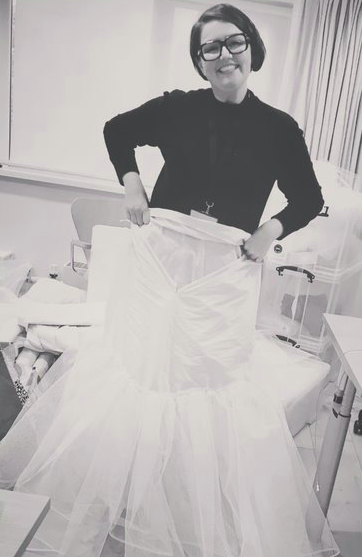
What is your research about?
My Ph.D thesis investigates acquisition methods used to obtain clothing by the lower classes in Ulster in the post-Famine period, c. 1850-1914. The research explores geographical variations between industrial Belfast and rural Ulster, to ascertain whether people in Belfast – a city which was a centre of factory-based textile production – accessed clothing in different ways to people in other parts of Ulster. The research assesses whether fashion influenced the acquisition of clothing among the poorer classes, social ideas influencing the clothing distributed as charity or welfare, the impact of industrialisation, geographical variations and change through time. The thesis explores on the market and off the market clothing acquisition options that were utilised by non-elites. These include poor law clothing, charity, purchasing from fixed traders, non-fixed traders, informal and illicit clothing networks and domestic production. The project combines archival research, folklore sources, and some analysis of visual and material culture held in museums. My research interests include non-elite clothing traditions in Ireland, the clothing of the poor, women and needlework, and the use of folklore sources in dress history.
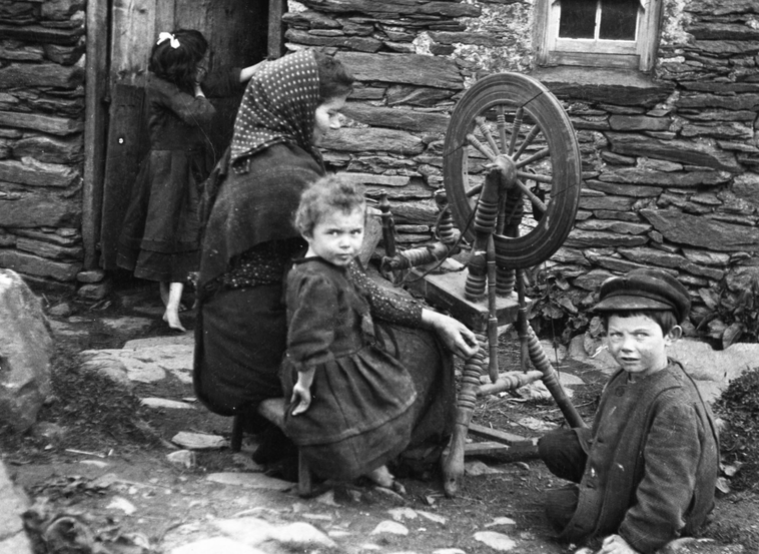
What sparked your interest in this topic?
The women in my family worked in Ulster’s textile industries, industries that have been much researched. I started to think about what women like them would have worn and where they obtained their clothing from. I have also been interested in the history of dress and the social history of the poor for a long time. I wanted to explore these interests in my PhD. The project is also an expansion of my MA dissertation, which explored clothing acquired via crime in 19th century Ireland.
Jessica Simonds
PhD Student, School of History, Anthropology, Philosophy and Politics | jsimonds01@qub.ac.uk |Twitter: @JKSimonds
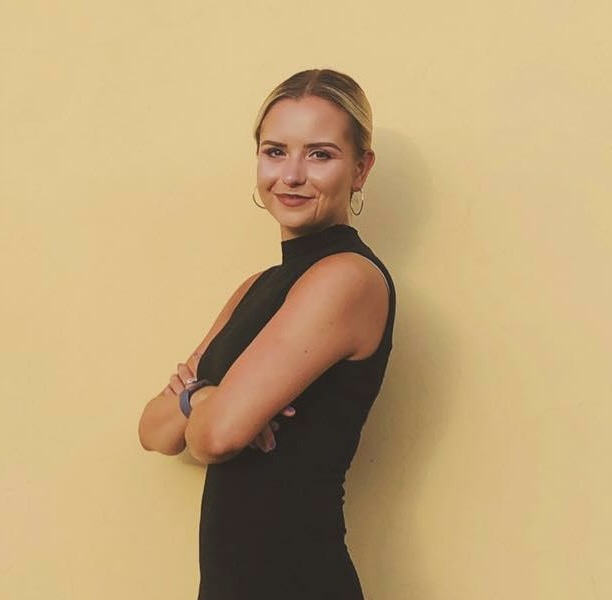
What is your research about?
My thesis addresses the production of safe insecure spaces in the navigation of risk at sea. By doing so, it renders many concepts of International Relations that have developed to suit a terrestrial and solid understanding of the world as amphibious. This means that my main focus is explaining how perils experienced at sea, in particular, that of piracy, are represented to seafarers in tools that guide their transit of the 71% of the surface of the earth that constitute our oceans and seas. I explore literary and historical representations of maritime risk such as Odysseus’ lengthy journey home from Troy and Sir Francis Drakes’s reimagination as a legitimate pirate through the Colonial construct of the ‘privateer’. This tells us that the space of the sea has been represented and therefore lived differently based on its representation relative to the moment it is being experienced and this leads to specific rules of participation at sea that may be covert, or overtly defined.
The empirical aspect of my research asserts this conceptual argument by drawing on the contemporary experience of Somali piracy by third-party maritime insurers (P&I Clubs) and seafarers to document how experiences of piracy, have been used on land to guide and reproduce practical deterrence measures that are implemented on board merchant vessels. I have found that the sharing of knowledge and expertise of life at sea, enhances the efficacy of guidance that embodies the everyday norms of seafaring but most importantly, pursues security, without posing further risk to the merchant mariner. Drawing on personal testimonies of seafarers who have transited the aptly named High-Risk Area and the experience of elite, expert representatives of the Maritime Insurance Industry, this study contributes the documentation of experiencing, sharing, and performing navigational deterrence practices as part of a longer, unfinished history of navigating risks at sea.
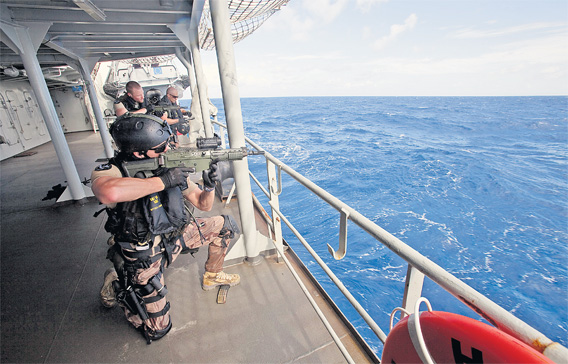
What sparked your interest in this topic?
Learning about stowaways as part of a course on asylum and migration as part of my undergraduate degree as well as my interest in Critical Security Studies and Political Geography.

